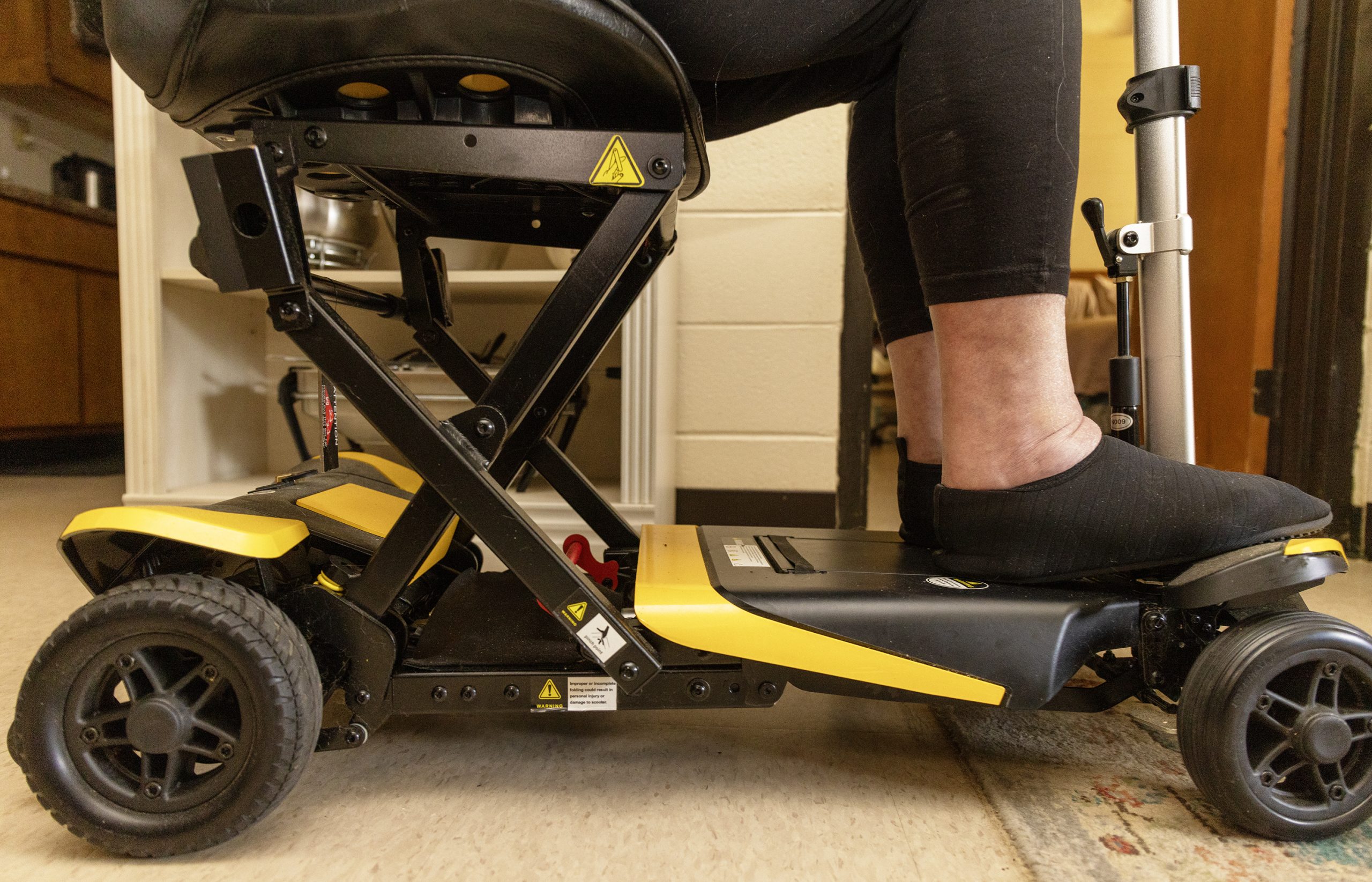Six percent of rides provided by the company that coordinates Medicaid recipients’ transportation to medical appointments – or three times the allowable limit – were late or missed in July.
The company’s first report to the Division of Medicaid since assuming the contract for transportation services indicated that five percent of scheduled rides were late, and one percent was missed, said Medicaid spokesperson Matt Westerfield.
The company’s contract states that no more than two percent of scheduled rides should be late or missed each day.
For-profit, Denver-based Modivcare is working to lower the percentage of rides that are late or missed, said company spokesperson Melody Lai in an email.
“We utilize data and close partnerships with healthcare facilities, transportation providers, and members across the state to continuously improve service,” she said.
Modivcare, which began its three-year, $96.5 million contract with the state on June 8 of this year, scheduled over 52,000 trips with beneficiaries in July.
About 3,000 of the rides were late or missed.
Nearly 40,000 rides were completed after cancellations made by both Medicaid recipients and drivers in July. Thirty-seven trips took 45 minutes longer than average.
Modivcare’s contract mandates it submit monthly reports detailing late or missed trips, along with other information.
Despite filing a public records request, Mississippi Today did not obtain a copy of the company’s first monthly report. The Division of Medicaid indicated that the reports could contain proprietary, third-party trade secrets and that Modivcare had the right to obtain a protective order prohibiting the release of the records.
State Medicaid programs are required to provide rides to doctor appointments to health plan recipients. States can manage the benefit directly, provide the service through Medicaid managed care contracts or contract with a third-party broker, like Mississippi.
Modivcare subcontracts with local transportation companies to provide rides to beneficiaries. Late or missed trips are considered the fault of the transportation companies that provide rides to beneficiaries, Westerfield said.
Mississippi Today last month reported that a woman who uses a wheelchair missed four doctors appointments after Modivcare assumed responsibility for the service in June. She said drivers refused to give her a ride on two occasions because they did not feel comfortable securing her mobility device. On another occasion, Modivcare told her there were no available drivers with the capacity to transport a wheelchair. Another time, the driver did not show up to the location she indicated.
Modivcare’s contract with the Division of Medicaid requires that each wheelchair vehicle have a wheelchair securement device that meets American with Disabilities Act guidelines.
People with disabilities are some of the most frequent users of the service.
Modivcare has been penalized for a high volume of late or missed rides in other states.
The New Jersey Department of Human Services fined Modivcare $1.7 million between 2017 and 2022 for failing to meet its contractual obligations, including missing scheduled pickups, reported the Bergen Record. The New Jersey Legislature considered a bill in 2023 to establish performance and reporting standards for Medicaid transportation services, but the legislation died in committee.
This month, The Maine Monitor wrote that patients have reported missing appointments and being refused rides by the company, which provides transportation services to 16 counties in Maine.
In Georgia, Modivcare and Southeasttrans, another non-emergency medical transportation company, were fined over $1 million from 2018 to 2020 for picking up patients late, KFF reported.
Modivcare was the lowest bidder during the contract selection process in Mississippi. The agency chose it over Medical Transportation Management, Inc., the previous contractor, and Verida, Inc.
Westerfield said that when the number of late or missed trips exceeds the two percent threshold, the division works with the company to correct the issue. If the issue persists, the company will receive official warning letters and the division could choose to seek damages.

